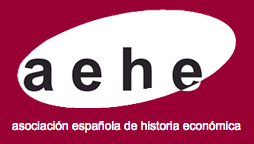Associationism, guilds and corporate restrictions in medieval Spain (13th-15th centuries)
DOI:
https://doi.org/10.1016/S1698-6989(08)70135-8Keywords:
Medieval guilds, Political factions, Non-corporate proscriptions, Roman law, Spain, N33, N43, N63, N83Abstract
This article asserts that the Spanish associations banned in the Low Middle Ages were not trade corporations and that those restrictions were both Spanish and European monarchs response to nobility and urban oligarchy's attempts to gain power, above all in politics, through different organizations. Guilds were indeed affected only when they took part of those political leagues or when craftsmen tried to control the market in their own benefit. And even in thoses cases the restrictions entailed just specific or temporal limitations. This assessment is based on a comprenhensive author's review of the extensive non-corporate laws developed in medieval Spain and of the explanations provided by literature in the last decades. A new possible explanation is proposed: the impact of the Roman law from the 12th century onwards.Downloads
Downloads
How to Cite
Issue
Section
License
Aquellos autores/as que tengan publicaciones con esta revista, aceptan los términos siguientes
- Los autores/as conservarán sus derechos de autor y garantizarán a la revista el derecho de primera publicación de su obra, el cuál estará simultáneamente sujeto a la Licencia de reconocimiento de Creative Commons Reconocimiento-No comercial-Sin obra derivada 4.0 Internacional que permite a terceros compartir la obra siempre que se indique su autor y su primera publicación esta revista, y no permite hacer uso comercial de la misma ni tampoco obras derivadas.
- Los autores/as podrán adoptar otros acuerdos de licencia no exclusiva de distribución de la versión de la obra publicada (p. ej.: depositarla en un archivo telemático institucional o publicarla en un volumen monográfico) siempre que se indique la publicación inicial en esta revista.
Plagio y fraude científico
La publicación de un trabajo que atente contra los derechos de propiedad intelectual será responsabilidad de los autores/as, que serán los que asuman los conflictos que pudieran tener lugar por razones de derechos de autor. Los conflictos más importantes pueden darse por la comisión de plagios y fraudes científicos.
Se entiende por plagio:
- Presentar el trabajo ajeno como propio.
- Adoptar palabras o ideas de otros autores sin el debido reconocimiento.
- No emplear las comillas u otro formato distintivo en una cita literal.
- Dar información incorrecta sobre la verdadera fuente de una cita.
- El parafraseo de una fuente sin mencionar la fuente.
- El parafraseo abusivo, incluso si se menciona la fuente.
Las prácticas constitutivas de fraude científico son las siguientes:
- Fabricación, falsificación u omisión de datos y plagio.
- Publicación duplicada.
- Conflictos de autoría.





